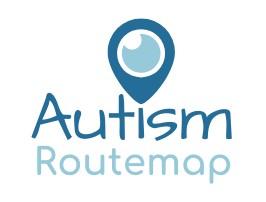Top athletes use this strategy to reach their goals

He took his place on the starter block - focus and determination framed his features. With nine gold Olympic medals in the bag, Michael Phelps, was hoping for another. The starter signal sounded and he plunged into the pool, legs and arms working together in powerful unison.
The crowds roared as the swimmers battled it out, jostling for position. In the final 50 metres, Michael took the lead. To the spectators, all looked well. But in the water, a different story was unfolding ...
What no-one knew, was that Michael was swimming blindly. His goggles had started filling with water the moment he entered the pool.
By the last leg of the race, Michael had no idea where his competitors were. He drew deeply on his inner world, imagining the race as he had done countless times before. He finished, not just in first place with yet another gold medal … but with a new world record to his name!
It wasn’t hope or chance that took Michael to the finish line at record speed. He had...
Why looking for the “silver lining” isn't enough to solve challenges

In the story of David and Goliath, we read that David, a young shepherd boy with no experience of battle, ran towards the giant. The other war-hardened soldiers lay cowering in fear. But David ran. No armour, no sword, no training, no experience. And, no-one who believed that he could defeat Goliath.
What gave David this confidence? He had an invincible belief that he would win. His faith and past experiences with a bear and lion convinced him that he could defeat the odds. And so, he did.
Our beliefs are cultivated over time. They start to form very early on with input from our primary caregivers. That soon expands to include other influencers like teachers, friends and the multitude of everyday experiences which mould our inner world.
By the time we reach adulthood, we hold some very well fortified beliefs about ourselves and the world in general. Have you ever tried to convince someone of your views when they believe the opposite? It really doesn’t matter how much evidence you pr...
Building bridges that cross the neurodiverse / neurotypical divide

In my last post, I discussed how the needs of neurodiverse / autistic people are not as obvious as a physical disability because they can’t be seen. These hidden challenges often lead to rifts in relationships because there isn’t a shared understanding of each other.
Common ground is built through discussions in which we actively seek to understand rather than judge. This is how we gain new perspectives and these up-dated viewpoints change lives both now and in the generations to come.
From my years of working with autistic / neurodiverse people, I’ve encountered certain themes which surface regularly. And it’s these, that I would like to share with you.
You may have heard the saying: “if you meet one autistic person, you’ve met one autistic person”. In other words, no two people are alike regardless of diagnosis. So, what follows is my two-cents worth to get the conversation started. It will not apply to everyone, so please don’t be offended by the content if it isn’t rele...
How neurodiverse people can help others to understand their needs

For years, autistic / neurodiverse people have been asking why they should have to change to fit into society. And as voices are slowly being heard, there is a growing trend towards acceptance and embracing difference. Granted, we still have a long way to go but the tides are changing. Society, on the whole, is marching forwards.
When it comes to the workplace, UK law (Equality Act 2010) states that reasonable adjustments should be made to prevent discrimination of people with disabilities. At the core, this is humanity’s recognition of difference. And that awakening, leads us to respect and accommodate diverse needs. In other words, to develop a culture which says, “you’re OK and I’m OK”.
So, we’re improving in the workplace but what happens outside of work? An autistic / neurodiverse person doesn’t finish their working day at 5pm only to find themselves magically morphed, like Cinderella, into someone else. In the real world there is no “bippity boppity boo” – the same nee...

